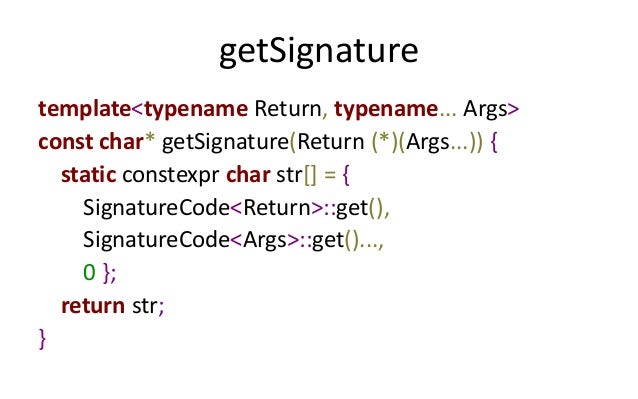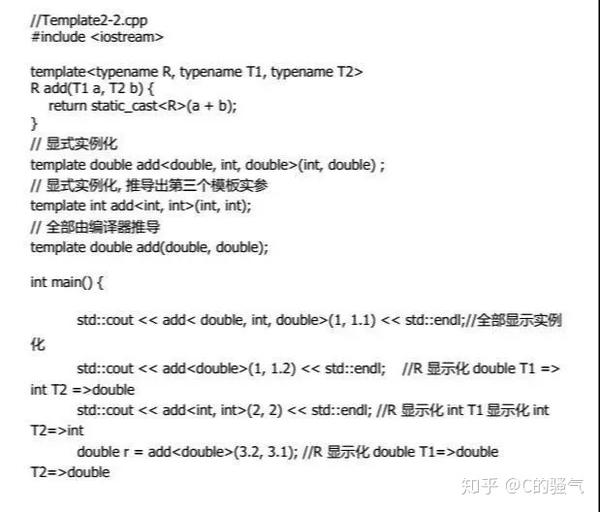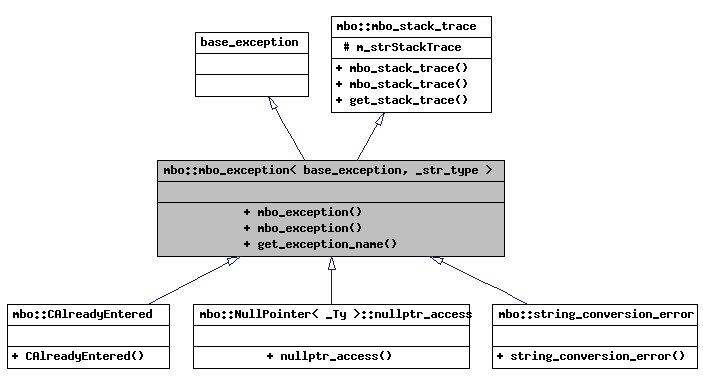Template Specialization C++
Template specialization c++ - C++11 (fenv.h) (float.h) c++11 (inttypes.h) (iso646.h). The result is a template parameterized on the remaining types. 19.1 template classes previous post 19.1 — template classes. This shall be one of the types for which an specialization is provided. In this case, we’re going to use class template specialization to write a. The specialization itself is still a template on the type pointed to or. A template has only one type, but a specialization is needed for pointer, reference, pointer to member, or function pointer types. A function with the same name and the same argument list as a specialization is not a specialization (see template overloading in function template). Generic programming is an approach to programming where generic types are used as parameters in algorithms to work for a variety of data types.in c++, a template is a straightforward yet effective tool. A template has multiple types and only some of them need to be specialized.
Fortunately, c++ provides us a better method: C++11 introduced template aliases, which act like parameterized typedefs. If the enclosing template is instantiated, the declaration of each member partial specialization is instantiated as well (the same way declarations, but not definitions, of all other members of a template are instantiated). Template specializations the char_traits standard template supports to be instantiated with at least the following character.</p> Templates in c++ is defined as a blueprint or formula for creating a generic class or a function.
Penggunaan Template Fungsi C++ Bundet
If the enclosing template is instantiated, the declaration of each member partial specialization is instantiated as well (the same way declarations, but not definitions, of all other members of a template are instantiated). Aliased as member type char_traits::char_type. The result is a template parameterized on the remaining types.
Connecting C++ and JavaScript on the Web with Embind
This shall be one of the types for which an specialization is provided. The result is a template parameterized on the remaining types. If the enclosing template is instantiated, the declaration of each member partial specialization is instantiated as well (the same way declarations, but not definitions, of all other members of a template are instantiated).
C++ Template
// generic template vector just like arrays, vectors use contiguous storage locations for their elements, which means that their elements can also be accessed using offsets on regular pointers to its elements, and just as efficiently as in arrays. Generic programming is an approach to programming where generic types are used as parameters in algorithms to work for a variety of data types.in c++, a template is a straightforward yet effective tool. Fortunately, c++ provides us a better method:
C++模板template用法 知乎
Generic programming is an approach to programming where generic types are used as parameters in algorithms to work for a variety of data types.in c++, a template is a straightforward yet effective tool. Default function arguments cannot be. // generic template vector just like arrays, vectors use contiguous storage locations for their elements, which means that their elements can also be accessed using offsets on regular pointers to its elements, and just as efficiently as in arrays.
How to a C++ Developer Learn a Course Online
An explicit specialization of a function template is inline only if it is declared with the inline specifier (or defined as deleted), it doesn't matter if the primary template is inline. A function with the same name and the same argument list as a specialization is not a specialization (see template overloading in function template). 19.1 template classes previous post 19.1 — template classes.
Separate Compilation of C++ Templates
If the enclosing template is instantiated, the declaration of each member partial specialization is instantiated as well (the same way declarations, but not definitions, of all other members of a template are instantiated). Aliased as member type char_traits::char_type. C++11 (fenv.h) (float.h) c++11 (inttypes.h) (iso646.h).
Free download Static Template Member Variable programs aurihelm
Default function arguments cannot be. If the enclosing template is instantiated, the declaration of each member partial specialization is instantiated as well (the same way declarations, but not definitions, of all other members of a template are instantiated). Template < class t, class alloc = allocator > class vector;
Free download Static Template Member Variable programs aurihelm
The following code shows the definition of a template. This shall be one of the types for which an specialization is provided. Class template specialization allows us to specialize a template class for a particular data type (or data types, if there are multiple template parameters).
A template has multiple types and only some of them need to be specialized. This shall be one of the types for which an specialization is provided. 19.1 template classes previous post 19.1 — template classes. // generic template vector just like arrays, vectors use contiguous storage locations for their elements, which means that their elements can also be accessed using offsets on regular pointers to its elements, and just as efficiently as in arrays. C++11 introduced template aliases, which act like parameterized typedefs. 19.3 function template specialization back to table of contents. The result is a template parameterized on the remaining types. A function with the same name and the same argument list as a specialization is not a specialization (see template overloading in function template). The specialization itself is still a template on the type pointed to or. Aliased as member type char_traits::char_type.
A template has only one type, but a specialization is needed for pointer, reference, pointer to member, or function pointer types. An explicit specialization of a function template is inline only if it is declared with the inline specifier (or defined as deleted), it doesn't matter if the primary template is inline. The following code shows the definition of a template. Templates in c++ is defined as a blueprint or formula for creating a generic class or a function. Generic programming is an approach to programming where generic types are used as parameters in algorithms to work for a variety of data types.in c++, a template is a straightforward yet effective tool. Default function arguments cannot be. Template < class t, class alloc = allocator > class vector; Class template specialization allows us to specialize a template class for a particular data type (or data types, if there are multiple template parameters). If the enclosing template is instantiated, the declaration of each member partial specialization is instantiated as well (the same way declarations, but not definitions, of all other members of a template are instantiated). If a primary template is a member of another class template, its partial specializations are members of the enclosing class template.
Fortunately, c++ provides us a better method: Sometimes, the programmer may decide to implement a special version of a function (or class) for a given set of template type arguments which is called an explicit specialization. In this case, we’re going to use class template specialization to write a. C++11 (fenv.h) (float.h) c++11 (inttypes.h) (iso646.h). Template specializations the char_traits standard template supports to be instantiated with at least the following character.</p>







